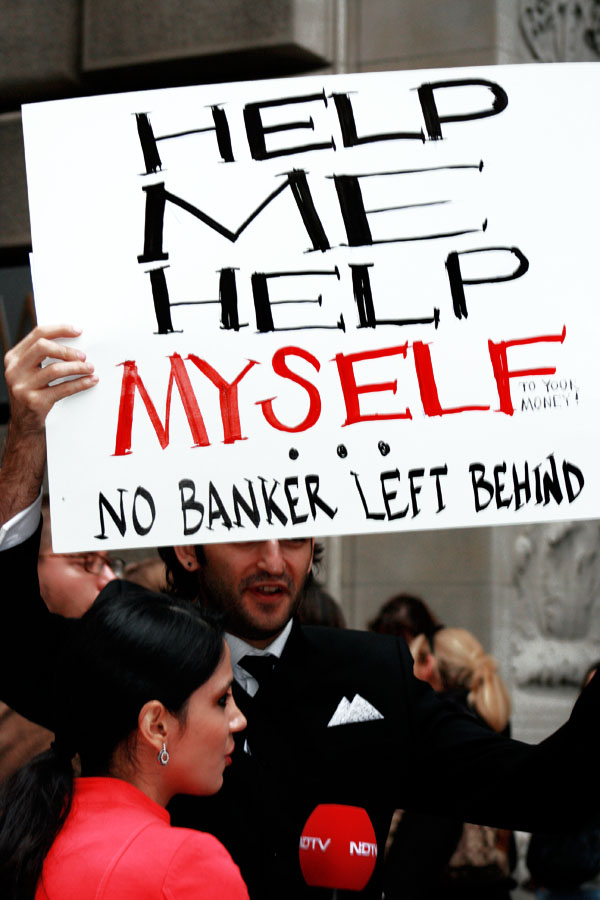As a consequence of the European Central Bank (ECB) raising its interest rates, banks in the euro area will earn €70 billion in unearned windfall profits.
Cross-posted from Positive Money Europe

There is a huge imbalance between the effects that the ECB’s response to the inflation crisis is having for banks, and those that it’s having for ordinary people. On the one hand, people have to pay more to borrow money to buy a house or start a business, while they do not earn much return on their savings. They are seeing their jobs and wages put at risk due to employers opting for pay cuts to offset higher overall costs. On the other hand, private banks in the euro area are set to earn 70 billion euros in “windfall profits”, which are unearned extra profits.
This drastic imbalance is due to the policy approach that the ECB is taking in an attempt to fulfill its role as the guardian of price stability: raising its interest rates.
Why are banks getting money from the ECB, and what does this mean for savers?
While people and companies deposit their money at the banks, banks themselves deposit funds at the central banks. This means that when the ECB increases its interest rates – as it has done three times since June 2022, and is expected to keep doing in the following months – it pays higher interest to the banks for the reserves they hold with the Central Bank itself.
What is the logic behind this approach? The ECB is attempting to curb inflation by compelling private banks to charge higher interest rates to customers taking out loans, and also to pay higher interest rates to savers depositing money. This creates a situation where it is more attractive for people to save money instead of spending it on goods and services.
However, the ECB relies on the banks to pass both the higher costs for taking out loans and the benefits they themselves gain from rate increases on to the “real economy” – that is, people and companies.
As things stand, this is not happening, or at least not completely: it is true that banks are making mortgage and loan rates higher for people, but there has been no significant increase in the interest that banks pay on savings accounts, which in many eurozone countries remain at 0% (or close to it). Even where banks have started to raise the rates they offer on their customers’ savings, like in Belgium, these are paltry increases compared to the ECB’s 2.5% rate – so the profit margin for banks is still very high.
What does this mean for public budgets?
Not only is this bringing no benefit to savers, but the Central Bank’s approach of addressing the current price crisis through interest rate increases also comes with a cost for public budgets. There are two main reasons for this. First, many central banks distribute their profits with their national governments, but in an environment of higher interest rates – in which central banks can make losses – fewer transfers will end up in the budgets of governments. Second, higher interest rates also mean that it is more expensive for governments to borrow money to invest in public projects, such as those to boost the green transition.
Are there any alternatives to the current approach?
The only ones that are truly benefitting from the ECB’s decisions are banks. Clearly, there is something deeply wrong with the current policy approach, which is boosting unjustified private profit, and with the consequent distributive effects that this is having. Not all is lost though – there are alternatives that several experts and organisations are advocating to address this injustice.
We at Positive Money are demanding the introduction of a windfall tax on the extra profits that banks are making due to central banks raising interest rates. In Spain, the government has already put the option of taxing banks’ extra profits on the table as a way to raise funds to tackle the ongoing price crisis. Yet, this proposal has been met with skepticism by the ECB itself, which seems to be more concerned about possible downsides for banks than those for savers and borrowers.
Another alternative demanded by economists and policy experts is that the ECB simply stops paying interest to banks for no real reason, since holding deposits at the central banks is totally risk-free for them, and does not have clear benefits for anyone other than the banks themselves.
The ECB continues to deploy conventional tools such as interest rate hikes, despite the fact they are proving ineffective in addressing the real underlying causes of today’s inflation, which is being driven by fossil fuel prices, financial speculation on the prices of basic goods, and supply chain disruptions. The ECB’s approach also has serious redistributional side effects, worsening inequality and increasing the debt burden on households. Positive Money Europe – which aims to rethink the money system so that it works for people, communities and the planet – will continue to push for a more effective and more fairly targeted intervention by the ECB, and ensure it has the right tools in its toolkit to fight inflation without piling more pressure on people.
Thanks to many generous donors BRAVE NEW EUROPE will be able to continue its work for the rest of 2023 in a reduced form. What we need is a long term solution. So please consider making a monthly recurring donation. It need not be a vast amount as it accumulates in the course of the year. To donate please go to HERE.


Be the first to comment